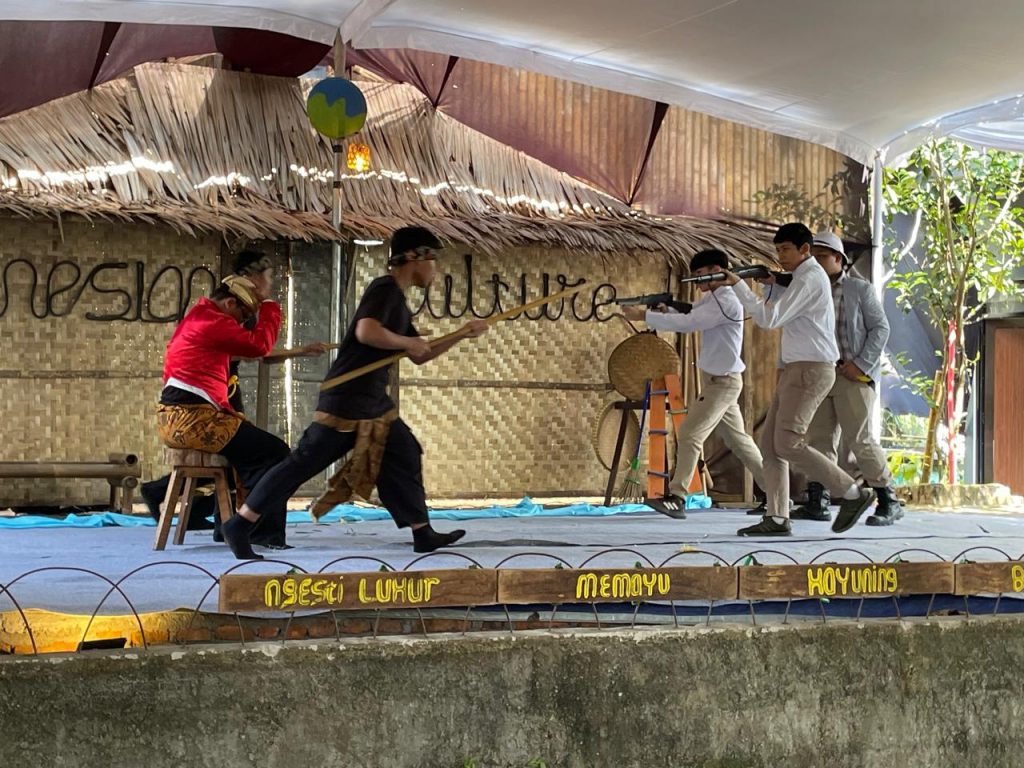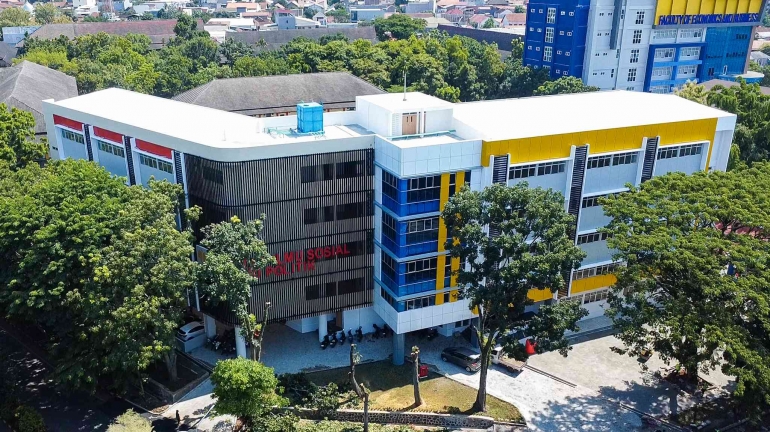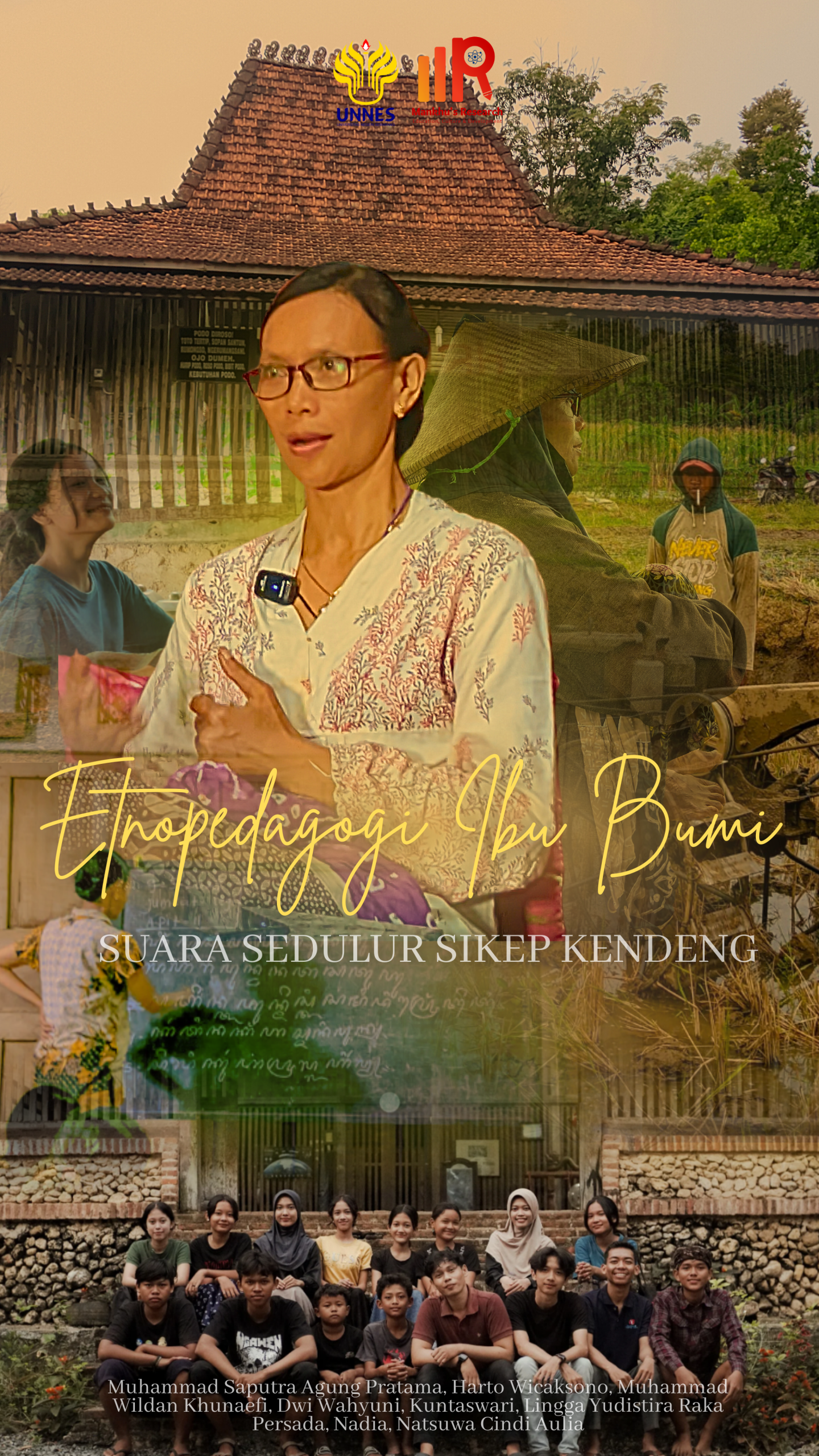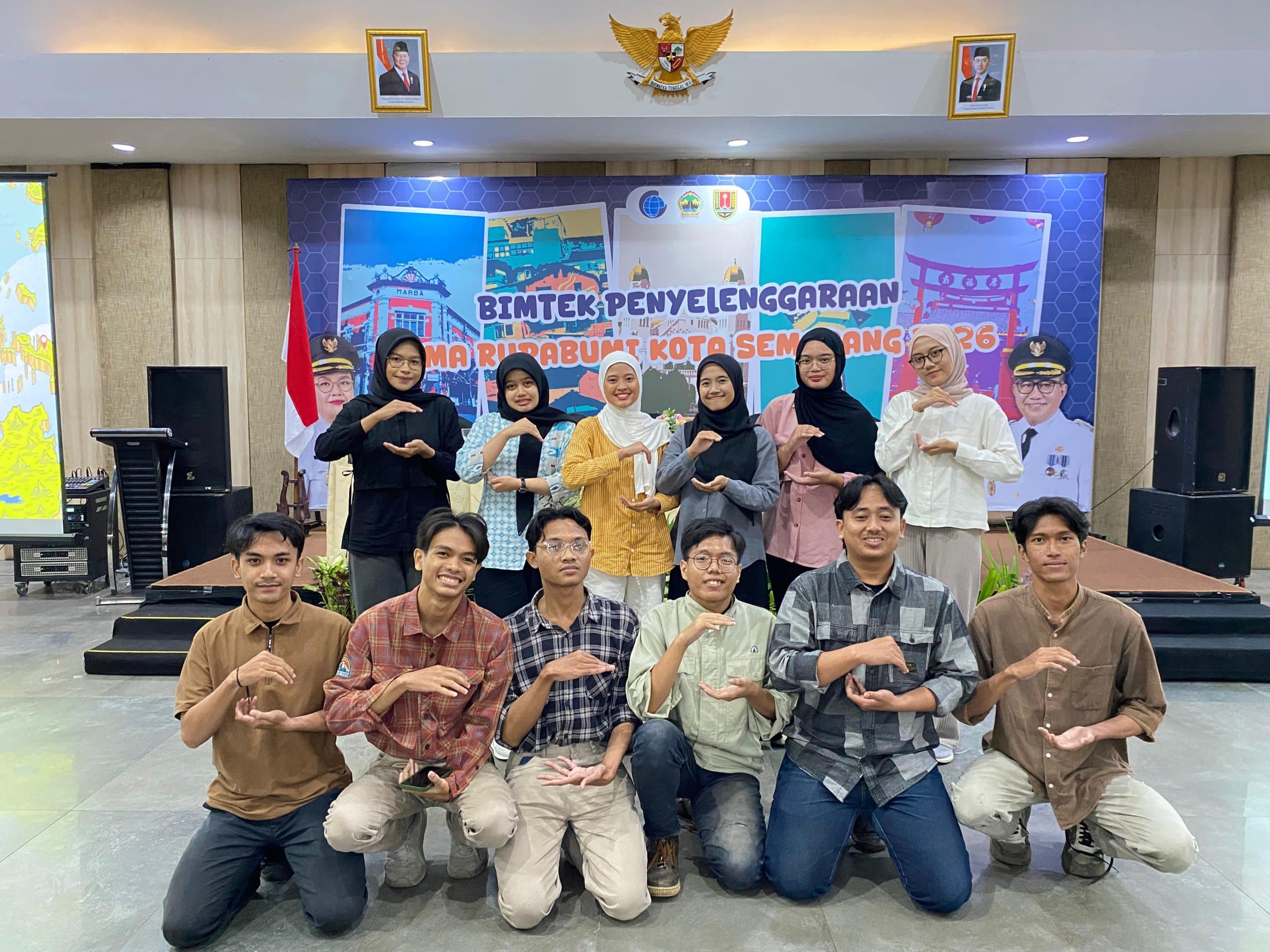
Para peserta didik memperagakan warga Semarang yang melawan penjajahan kolonial Belanda dalam acara Indonesia Culture 2025, di Sekolah Alam Ar Ridho, Semarang, Sabtu, 22 Februari 2025.
Meneladani perjuangan para tokoh Islam di Semarang, Jawa Tengah memberikan pelajaran berharga tentang keteguhan dalam berdakwah dan membangun peradaban. Semangat inklusivitas yang mereka terapkan dalam penyebaran Islam dapat menjadi inspirasi bagi generasi saat ini dalam menjaga harmoni sosial dan keberagaman.
Dari sejarah ini, anak-anak di sekolah belajar bahwa Islam berkembang di Semarang melalui berbagai cara. “Bukan hanya melalui doktrin agama, tetapi juga melalui interaksi sosial, pendidikan, dan keteladanan yang ditunjukkan oleh para pendahulu,” ucap Koordinator Program Studi Ilmu Sejarah FISIP UNNES Mukhamad Shokheh, Ph.D dalam kegiatan Indonesian Culture 2025 yang mengangkat tema Semarang Ngesti Luhur, Memayu Hayuning Bawana, Sekolah Alam Rr Ridho, Sabtu, 22 Februari, 2025.
Semarang memiliki sejarah panjang dalam perkembangan Islam di Indonesia. Salah satu tokoh penting dalam penyebaran Islam di wilayah ini adalah Syeh Jumadil Kubro, atau yang dikenal sebagai Syeh Wali Lanang. “Ulama asal Yaman ini telah lebih dahulu menyebarkan ajaran Islam di tanah Jawa sejak tahun 1404. Ketika tiba di Bergota, ia terpesona dengan keindahan pohon asem yang tumbuh berjauhan dan memberi nama daerah tersebut “Semarang,” kata Shokheh.
Sejarah juga mencatat peran besar Ki Ageng Pandan Arang yang ditugaskan oleh Raden Patah dari Kesultanan Demak untuk mengislamkan penduduk di Pulau Tirang, yang saat itu masih dipimpin oleh para raja atau pemimpin agama Hindu. Sebagai kota pesisir, Semarang menjadi pusat penting dalam perdagangan dan dakwah Islam.
Penulis buku Mozaik Peradaban Islam Lampau Kini dan Dulu menabahkan muhibah orang-orang Tionghoa ke Semarang sejak awal abad ke-15 turut berkontribusi dalam proses Islamisasi, diikuti oleh pelayaran Cheng Ho yang membawa komunitas Muslim Tionghoa ke wilayah ini. “Islam berkembang pesat terutama setelah runtuhnya Kesultanan Demak, dengan berbagai jalur penyebaran seperti perdagangan, pendidikan, perkawinan, politik, dan tarekat” jelasnya.
Perkembangan Islam di Semarang tak terlepas dari upaya para tokoh agama yang mengedepankan strategi dakwah yang adaptif dan inklusif. Pada abad ke-17, pesantren di Semarang muncul sebagai simbol perlawanan terhadap kolonialisme. Pendidikan Islam terus berkembang, menciptakan generasi yang tidak hanya memahami agama tetapi juga memiliki semangat perjuangan dalam menghadapi tantangan zaman.
Peran pesantren semakin signifikan pada akhir abad ke-19, saat pemantapan ajaran Islam menjadi bagian dari kehidupan sosial masyarakat Semarang. Fenomena ini menunjukkan bahwa tradisi keislaman di Semarang tidak hanya diwariskan, tetapi juga mengalami proses revivalisme yang terus berkembang sesuai dengan kebutuhan zaman.
Aji Nur Setiawan Kepala Bidang Pembinaan Sekolah Dasar Dinas Pendidikan Kota Semarang menerangkan perlunya Pendidikan adab dan karakter kepada anak. “ Keteladanan dapat melatih Karakter yang bisa ditiru anak-anak termasuk adab sopan santun bisa mereka peroleh dari keteladanan pendidik juga,” terang Aji.
Sementara itu, Slamet Agus orang tua peserta didik setuju dengan pendapat selain Pelajaran umum Pendidikan karakter penting untuk anaknya. “Adab dan sopan santun itu akan dibawa anak-anak hingga dia lulus sekolah nanti,” aku Slamet, saat menemani kedua anaknya yang sedang tampil dalam acara yang diselenggarakan dalam rangka menyambut bulan ramadan. (Bambang r.




